@JAMWANDA2 ON SATURDAY: Of clerics and the secular question
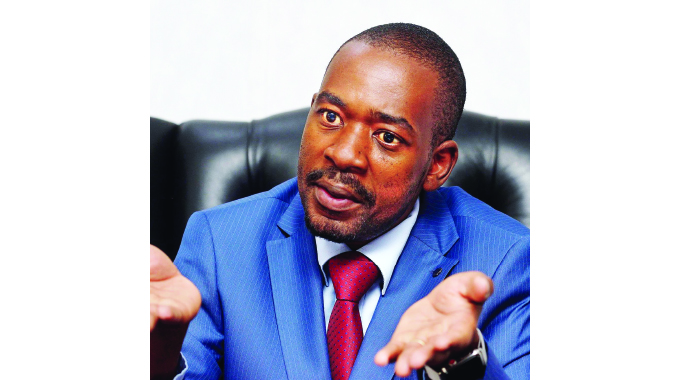
God’s emissaries
I have nothing against clerics or pastors; in fact my reverence for them is a euphemism for the abject fear I hold of being denied the side and place of comfort in the world yonder. They are, after all, our intercessors in the quest for eternal peace in the life after.
The scriptures tell us they enjoy the coveted company of Divinity, and know God’s wishes ways to Man, to use John Milton’s timeless phrase. Hence the aura of divinity, modest portion of which we all wish would flow into us.
Not good actors in the secular
But it is when they go below the celestial, into the murky and sinning world of the corporeal or secular world that my regard and fear for them diminishes, often irreparably.
In that domain, these divine messengers become mere men, real creatures of mean urges and gratuitous fallibilities and foibles we all have and suffer from. And when they aspire to be mere men, quite often their foibles get disgustingly apparent and magnified. It’s not their world, after all!
A reading from Christopher Marlowe
Which reminds me of one Christopher Marlowe and his historical play he called Tamburlaine. He penned it in late 16th Century. Marlowe was William Shakespeare’s contemporary and, alongside this immortal, world-famed playwright, part-personified the genius of his Age we call Elizabethan.
Time, the only victor against kings
The play Tamburlaine is about the heroic career of a warrior-king who went on an unchecked conquering spree of vast lands. Did so until his demesne or kingdom virtually covered the whole globe, never mind there is no mention of Africa, or our little Zimbabwe in his exploits. But then, this was Elizabethan geography in which Africa was no place.
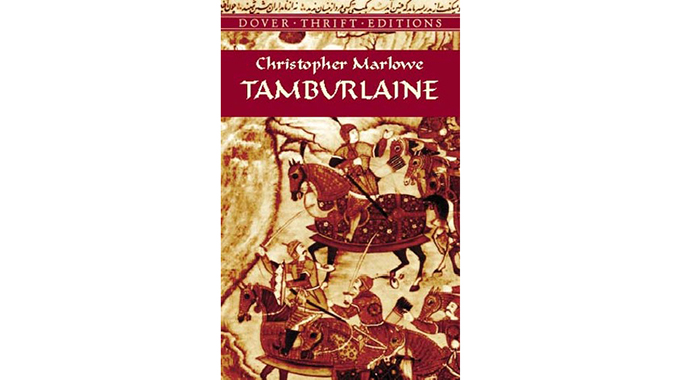
Marlowe casts him as unstoppable; or so Tamburlaine thought. As Tamburlaine marched triumphant, razing all empires, great and small, little did he notice some small, invisible warrior was gently gaining on him, daily registering small and barely noticeable gains against him. But inexorable, incremental and irreversible.
That small, invisible warrior wielded a puny scythe no conqueror of note that Tamburlaine was, would ever worry about. Yet that little scythe daily chipped down his muscular tendons, small by small, and steadily.
Thou Art a Mere Man
It was only when he was done with conquering the world, and had no other space to challenge, that he finally returned home to rest, for the first time getting time to listen to his body he thought was beyond wearying.
Away from the heat of battle, in greater repose, he felt an ache he never thought a conqueror like him would be susceptible, let alone succumb to one day. Time had taken its toll, hastened and compounded by a life of strain he had lived.
Imperceptibly, this little warrior had been sapping his energies which repeated victories against powerful principalities hid.
But with a less martial, less hectic life, Tamburlaine felt the arthritic ache which made all the vast lands he had conquered, the successive battles and wars he had won, small and insignificant. Much worse, the precious life he had wasted and frittered away in strains of battles, had been lost to this little, ageless warrior against which neither his stupendous will nor by sword could prevail.
As time went by, the invisible victor consolidated over him, prostrating him in the end. Bed-ridden, groaning and dying, Tamburlaine quipped: “Oh Tamburlaine, thou art a mere man!” Before long, he succumbed, leaving behind the vast lands he had conquered. Such is the story of human frailties, fallibilities and eventual mortality.
Too unclean to judge
Bishop Ancelimo Magaya is just that, a bishop. I cannot say how good or bad he is in that role and sphere. That is between him and his flock; between him and the God he serves.
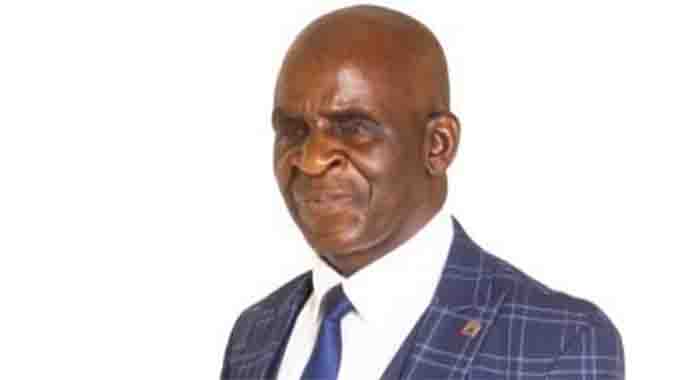
Bishop Ancelimo Magaya
Even my status as a halting Catholic – I don’t recall when last I received the Eucharist – does not place me in good stead to pass judgment on matters and figures spiritual. So I won’t dare dabble in that celestial sphere. No beef, no bone to chew.
A Bishop with Caesar’s things
But Bishop Magaya loves to overreach, to court controversy, never on matters ecclesiastical. He seems to enjoy diving into the secular, often with the boisterous aplomb and care of a bull of mighty hooves in a china shop.
It requires no divination to tell what fine wreck he leaves behind, each time he plunges into such earthly errands, which he does with irritating frequency, often to a yodelling press. He wants to project himself as wielding impeccable solutions to human challenges, in this secular life.
A man of yesterday
No stranger to controversies over intensely secular matters, he came to national notice during late Tsvangirai’s political heydays. He would excoriate the late President Mugabe, his Zanu-PF party and his Government, more than any prince of power could better do.
For him, the Bible was a resource book for his politics, and he used it with devastating or acerbic selfishness. In his hands, one almost thought the Bible was written as one compendious diatribe against one Robert Mugabe, the man he daily excoriated for Tsvangirai.
He has several run-ins with the law enforcement agents, handily thrusting himself forward as a willing victim, to validate a narrative of impious police brutality under President Mugabe. We suffered him.
The Zimbabwean no one Wants
Today, he is back in action, drastically subdued and sapped, possibly by time, a bit of wisdom and much infirmities. He is now a pale shadow of his former aggressive self, but no less wicked in political intention and creative misapplication of the Bible to settle secular questions.
And as he does all that, he swears by God and man, he is no politician; only a God-fearing man expending his ever diminishing energies towards inventing “the Zimbabwe we all want”.
The journalist, the harlot
Today’s newsrooms are full of yuppies, real cubs who, age apart, are hugely infantilised by their aversion for reading anything before them. It is as if journalism has now become synonymous with haughty, scribbling ignorance.
Yes, as if there was no world, no story before these cub reporters and editors entered the newsroom.
Yet the industry of news claims vast age, arguably only challenged by harlotry, with which is shares quite a bit. Baldwin, the past British Prime Minister it was, who vividly drew the analogy between these two professions, and personages who have driven them, across ages.
He claimed, with clear prime ministerial bitterness, that journalists wielded clout akin to that reposed in harlots: too much power without any responsibility.
Nothing new, nothing original
When today’s journalists hear Bishop Magaya talk about “the Zimbabwe we all want”, they think he is inspired by the spirit of Mount Sinai, only in the southern Savannah. They credit him with inventing a new phrase that perspicaciously adds to political lexicon.
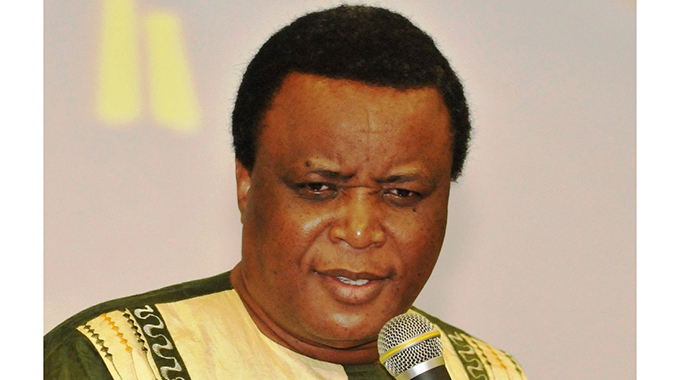
Apostle Andrew Wutawunashe
Except only light reading – the least favour they can do to us as paying readers – would have revealed the holy Bishop is no inventor, least of all a latter-day John the Baptist. Rather, he is just a man preying on ignorance in juvenile newsrooms, to plagiarise and regurgitate with absolute impunity so obscene and unseemly of man of faith and heavenly honour. The notion of the “Zimbabwe We Want”, and the report which captured and elaborated on that notion, is a brainchild of several clerics, among them Baba Kuchera, Bishop Manhanga, Wutawunashe and many more I would need the whole issue of the Herald to catalogue. With great fanfare, that document was launched in the First Republic before the late President Robert Mugabe, in Hatfield.
No holy fantasies in politics
Sadly, it foundered, because the then MDC under Tsvangirai, did not find favour with it. It had several sequels to it, the penultimate one being Reverend Dr Mutata’s, suggesting seven years of electoral purgatory, in an age where the ballot is the king, the alpha and omega of politics.
It is interesting that what clerics who gave us the real “Zimbabwe We Need”, would soon lose ground to President Mbeki, who successfully brokered some kind of peace under the now infamous, and little understood GNU. The lesson was very clear, to all intent on good reading of political questions: great political questions of the day are resolved, not by beautiful pieties and starry-aiming publications, but by hard-nosed politics, often preceded by a bit of blood.
I am not romancing political violence, only recognising and acknowledging its space in this our imperfect world, so far away from Godliness. Sordid truth, often ducked by those romancing fantastical idealisms. I am not one of them, having served power long enough to know and accept.
Lessons from The Book of Nehemiah
And the arbiter is rarely a priest in collar, however radiant. It is always a political sibling, one personifying exactly the very foibles any political settlement is meant to cure.
Again, it sounds like I am caressing the ugly, yet with great deal of wisdom and realism. Simply put, priests in politics come across as naive irritants who think ills of this hard world will be prayed away at one sitting. I saw a bit of that when a group of clerics from my Catholic Church – they were called St Egidio – sought to broker peace between the Mozambican Govt and Renamo under late Alfonso Dhlakama.
President Mugabe and one or two other statesmen, with me in tow, were stuck in Rome for nearly a week, without ever getting Dhlakama to materialise. When he finally did, it was because the ZNA, alongside other armies of the then Frontline States, had done a few painful things in the jungles of Mozambique. I saw the same, too, in The Congo, when Zimbabwe deployed, alongside Angola and Namibia.
My main point is that it’s not always that these reverent gentlemen even admit the Book of Nehemiah reminds us Jericho is rebuilt not just with brick and mortar, but with a sword half-sheathed in the scabbard.
Unfit for purpose
Back to Bishop Magaya. Simply put, he cannot broker any peace between warring parties in Zimbabwe, now or forever.
He lacks the credentials, over and above his frailties and failings from past roles. In fact, he has become part of the problem requiring mediated peace. The sooner he accepts that, the better it is for everyone, including the paper which weekly regales him.
It’s a lost cause. No housefly delivers honey, whatever the tolerance level of the mouth that sips, licks!
Staging a play without the Hamlet
Secondly, there is a platform for any kind of political dialogue already. It is called POLAD, itself a creature of one Emerson Mnangagwa, the extant President of this country.
To seek to contest a platform created the Hamlet of the play is to naively suggest any politician wielding the elected power of Office, can ever opt to be a plebeian in politics. It’s the naïveté of the same genus which saw Reverend Dr Mutata hoping he could walk away with a trophy over proposals which were premised on voluntary abdication of power and mandate freshly won, so soon into a tenure. But what we face in Bishop Magaya, all else aside, is exactly the opposite: a belief that tenure so close to end, and only renewable by vote, can be traded in for something ethereal called “The Zimbabwe We Want”!
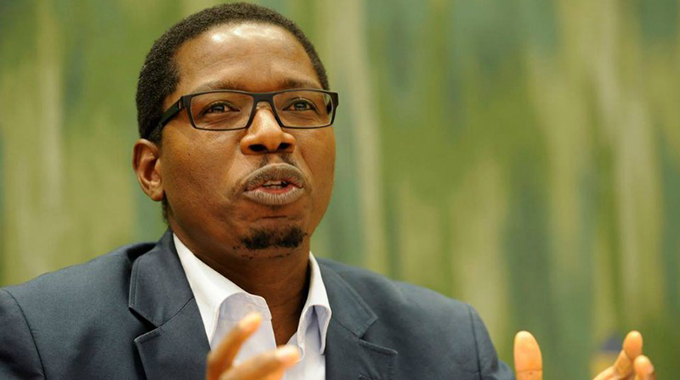
Reverend Dr Mutata
I am being polite in my choice of words; I could have inserted “miasmic” in the preceding construction! Let it be said, by proposing a platform other than POLAD, Bishop Magaya is being intensely political, provocative and echoing an argument favouring a side in a contest. That doesn’t make him an honest broker.
Chamisa’s lightning rod
Thirdly, Zanu-PF skilfully used POLAD to buy the peace and reasonable consensus it needed to launch and consolidate programmes it pledged to the voter. That programme has taken root, placing Zanu-PF on formidable plinth. Again, the Bishop expects Zanu-PF to cede all that gain and upper-hand because Chamisa is in throes!
Is that not the Politics Zanu-PF Wants, ahead and so soon to the next poll, namely a buffeted Chamisa? Now the Bishop hopes to be Chamisa’s lightning rod, by repeating an argument whose provenance and home we all know. Good luck to him.
Honey from a housefly?
Fourthly and penultimately, why is so much dirty money behind this pseudo-initiative? Money from exactly the same powers who fund the opposition in this country?
As with Reverend Mutata’s thing, all the Western powers are behind the initiative. When is their money clean enough to yield the Zimbabwe We Want, yet from the same wallet whence comes dirty lucre supporting The Politics We Do Not Want in Zimbabwe?
Do scriptures allow for Janus-faced monsters! To the point of even enmeshing platforms purporting to discuss the Zimbabwe We Want and those running opposition programmes? As happened recently in Harare? Like I said, a housefly delivers some other matter; not honey.
A look at history
Last and from history, Zanu-PF never negotiates ahead of elections it fights to, and knows it will win. Is that not the lesson of Zanu from 1980, until after the Unity Accord? Even then, the only probable partner was the then Zapu, a fellow liberation movement with impeccable nationalist credentials.
What more some Chamisa who hobnobs with imperial powers Zanu-PF fought against, and seeks succour from them, everlastingly! As I write, his minions are busy prettifying Ian and Janet Smith, in the lifetime of guerrillas who carry injuries from fighting both. As I write, Chamisa has well-known Rhodesian ex-servicemen in his structures.
You expect Zanu-PF to engage a political outfit which, even in impotent opposition, fancies itself repudiating the Liberation Struggle for The Rhodesia it Dreams About? Really! In our donkey kingdom, we know mating with horses beget mules which don’t multiply.
Let me bray for more masese and for mating so my kind multiplies in line with heavenly injunction.







Comments